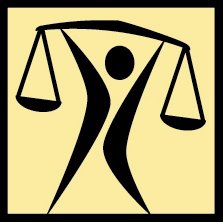November 12, 2014 at 3:22 pm
· Filed under Attorney Pro Bono, Student Pro Bono
Sam Halpert, PSJD Fellow 2014 – 2015
“Public libraries are critical access points to government institutions. As times get tougher, it becomes more and more important that people have libraries where they can find out how to protect their rights and navigate the complexities of our society.”
— Self-Represented Litigation Network, National Center for State Courts
If you’re looking for pro bono opportunities, you might want to try your local library. For example, just this fall the D.C. Public Library partnered with D.C.’s Neighborhood Legal Services Program, joining a growing number of public libraries where low-income patrons can obtain legal information or advice. (Update: Check out the Washington County [Oregon] Law Library’s list of library-legal aid collaborations to get a sense of scale.) Working with the library, NLSP lawyers will focus on employment law, adding a legal component to job programming, which the DC Public Library (like many similar institutions) has offered its patrons for some time. In addition, the partnership includes seminars on tenant rights and paternal rights.
With this new partnership, the D.C. Public Library joins a number of its sister institutions working to address the United States’ access to justice gap. The concept has been picking up steam since at least 2010, when the Self-Represented Litigation Network of the National Center for State Courts held a conference titled “Public Libraries and Access to Justice” at the University of Texas at Austin. In 2012, Probono.net followed up on the conference with a Webinar Series titled “Libraries and Access to Justice.”
Both of these events explored the logic behind library-legal aid partnerships and the variety of forms they have taken. Like DC, some of these institutions bring pro bono lawyers into the library to provide community education. Other libraries ask lawyers to train library staff to work with online legal resources; a third group hosts full-blown legal aid clinics. Update: Liz Keith of Probono.net recently clued me in to Colorado’s Virtual Pro Se Clinic initiative, which connects pro se litigants to volunteer attorneys via webcam–a model that relies heavily on public libraries’ computer services.
For my fellow Washingtonians, if you’re interested in being involved contact the NSLP’s project attorney, Dan Choi (dchoi@nlsp.org), with questions or requests for information. For those located elsewhere, ask your local library whether they have any similar partnerships going. If your area isn’t yet lucky enough to host one of these partnerships, remember that both the Self-Represented Litigation Network and Probono.net have left all of their event materials online. Between the two, you have access to a wealth of information and contacts to help you think about how your community might begin leveraging libraries for legal aid.
Permalink
May 30, 2012 at 1:15 pm
· Filed under Public Interest Jobs
The Center for Collaborative Change is seeking an energetic, dedicated graduate student or recent graduate with inter-disciplinary skills and a passion for collaboration to join our team as a Summer 2012 Community Law and Policy Intern. Current projects that interns could be involved with include a community wide needs assessment for Newark, community input portions of the Newark Master Plan, and a non-profit community organization incubation summit.
The Center for Collaborative Change is a community-based nonprofit that brokers collaborative solutions to make Newark thrive. Our mission is to engage community and civic leadership in policy and program development in order to accelerate Newark’s revitalization while ensuring that the process includes and responds to the priorities of its community members. The Center is committed to restoring trust between Newark’s decision-makers and residents, realigning them to be on the same team, and using the knowledge and resources of that alliance to establish a critical mass of reforms that will bring Newark to a tipping point where a positive cycle of health, abundance and opportunity can achieve momentum. For more information about the Center, please visit our website: www.newarkchange.org.
See the full listing at PSLawNet!
Permalink
May 30, 2012 at 1:06 pm
· Filed under News and Developments
By: Maria Hibbard
Before I came to law school, I thought the right to be protected from double jeopardy, or being tried for the same crime twice, was one of the guaranteed rights of the American judicial system. If I’ve learned anything throughout my first year of law school, however, it’s that the answer to the question of whether anything is guaranteed is “possibly” or “maybe.”
Although the right to be protected from double jeopardy is preserved in the Fifth Amendment, as Andrew Cohen noted this weekend in The Atlantic, this right has frequently been eroded by precedent and the very nature of our judicial system. When the Supreme Court decided Blueford v. Arkansas last week, the right against double jeopardy became even more subject to parsing. In the original trial, Blueford was charged with capital murder, first-degree murder, manslaughter, and negligent homicide for the death of a one-year old child. When the jury returned from deliberation, the foreperson stated that although they had voted unanimously to acquit the murder charges, they were deadlocked on manslaughter and did not vote on negligent homicide. Although the judge sent the jury back to deliberate more on the lesser charges, a mistrial was declared.
The Supreme Court had to decide whether the foreperson’s announcement of the jury’s votes to acquit were sufficient to invoke double jeopardy protection on the murder charges. The Court agreed with the state, however, saying that protection was not valid because the jury could have re-evaluated their acquittal when they were sent back to deliberate further on the lesser charges. Chief Justice Roberts writes, “It was therefore possible for Blueford’s jury to revisit the offenses of capital and first-degree murder, notwithstanding its earlier votes. And because of that possibility, the foreperson’s report prior to the end of deliberations lacked the finality necessary to amount to an acquittal on those offenses…” In his analysis, Cohen criticizes the majority’s use of a hypothetical (not unlike the “what if” Socratic questions of my law school professors), noting the irony in the fact that although Blueford had heard the jury acquit him of the murder charges in open court, in his new trial (still yet to come) another jury could possibly still find him guilty.
What does this case mean for public defenders and appellate advocates? There’s no double jeopardy protection in a mistrial, even if the jury’s vote to acquit is stated in court. Although the Fifth Amendment seems to guarantee double jeopardy protection for every defendant, the only thing that seems to be sure is that it “depends on the circumstances.”
Permalink
May 30, 2012 at 10:24 am
· Filed under News and Developments
From the New York Times’ Opinion Pages:
In “Rethinking Pro Bono” (Op-Ed, May 14), Ben Trachtenberg casts Chief Judge Jonathan Lippman’s new legal public service requirement as bad policy, saying students and graduates can’t afford it, can’t do it and shouldn’t be asked to do it since better ideas abound. Starting in 2013, candidates for admission to the New York State Bar must complete 50 hours of public service.
Contrary to Mr. Trachtenberg’s argument, 50 hours of pro bono work will not mire law students and graduates in poverty. Moreover, volunteers can make a difference while gaining skills, confidence and links to jobs. . . .
The pro bono requirement may have hidden virtues. Over time, schools, firms and the courts may guide more resources toward public service, helping to improve its quality. The first opportunity to do pro bono can also make the second easier, instilling in many a commitment for life.
Alternative approaches may also have merit, but credit the chief judge for acting in urgent times to make this good idea a reality.
Read the rest here and respond to this letter for NYT’s Sunday Dialogue.
Permalink
May 24, 2012 at 1:15 pm
· Filed under Public Interest Jobs
Prairie State Legal Services, Inc., a 65-lawyer legal services organization, serving 36 counties in northern and central ILLINOIS outside of Cook County,

is seeking applicants for a STAFF ATTORNEY position in our community legal services office located in BLOOMINGTON. The successful applicant will participate in a full range of legal activities, including the preparation and
Prairie State Legal Services offers free legal services for low income persons and those over 60 who have serious civil legal problems and need legal help to solve them.conduct of administrative hearings and trials of cases for elderly and low-income persons.
Learn more at PSLawNet!
Permalink
April 27, 2012 at 10:15 am
· Filed under News and Developments
Yesterday, the Washington Legal Clinic for the Homeless’ blog featured a guest blogger who had a pretty compelling story to tell. Here’s a quick snippet, but read her post in its entirety at WLCH’s blog.
. . . I grew up in the DC foster care system. I didn’t have an easy childhood, but I was always a good student (I even won the science fair two years). After my high school graduation, I went to medical assistant school and began working. Three months after I had my daughter in 2008, I found out that I had Multiple Sclerosis. My daughter’s father decided he couldn’t deal with the stress, so he opted out of our lives. I went to work and realized that I would get sick in spurts. My relapses would come suddenly and fiercely, sometimes a numb leg or numb arms, sometimes I would go blind, sometimes I wouldn’t be able to move at all. It started to affect my ability to keep a job, and I fell behind on my rent.
I first went to Virginia Williams Family Resource Center (FRC) in 2010 because I lost my apartment, but I was still employed. They gave me first month’s rent and security deposit, but I knew I would get sick again and that the short term assistance would not be enough to keep me from losing yet another apartment. I lost my job again because of my illness and I was evicted from my apartment shortly after that in the fall of 2011. My daughter and I house-hopped between our friends and family for almost two months, sleeping on couches and floors for as long as we could.
Finally, just before the New Year, we were placed in a hotel room on NY Avenue. I was grateful to have a bed to sleep on after so long. But now it’s been months and it feels like we’ve been forgotten. I don’t know what the rest of the shelter system is like, but when you’re in a hotel, you don’t talk to anyone, you don’t see anybody, you have no sense that anyone is working to help you. We’re just there. We’re just a number. I have not seen a caseworker since I got here.
Read the rest of Charmaine Walton’s story here.
Permalink
April 26, 2012 at 1:15 pm
· Filed under Public Interest Jobs
The Maryland Office of the Public Defender is an independent state agency with over 800 employees dedicated to providing superior legal representation to indigent defendants in the State of Maryland. The Office of the Public Defender seeks dynamic and dedicated litigators to serve as Assistant Public Defenders in District Court locations throughout the State of Maryland. 
Assistant Public Defender I Responsibilities:
- Represents indigent defendants who are charged with misdemeanor criminal and traffic cases in district courts throughout the State of Maryland.
- Prepares for and handles bail review hearings, district court trials, preliminary hearings, violations of probation hearings, sentence review hearings and modification of sentence hearings.
- Handles telephone inquiries and correspondence from clients and the public.
- Participates in Office of the Public Defender trainings.
Assistant Public Defender I positions are located at OPD offices throughout the State of Maryland.
Learn how to apply at PSLawNet!
Permalink
April 23, 2012 at 3:55 pm
· Filed under News and Developments, The Legal Industry and Economy
Another sad story from within our public interest sphere.
From Human Rights USA‘s Board of Directors:
Human Rights USA’s Board of Directors is sad to announce that the organization will be closing down on April 30, 2012, and our clients placed with other organizations and law firms who will continue their representation. The Board’s decision comes primarily as a result of the difficult funding landscape facing public interest organizations at this time. We would like to extend heartfelt thanks to Human Rights USA’s staff, clients, current and past funders, the countless pro bono attorneys and law student volunteers who have worked with us, and all of the organizations that have partnered with us over the years.
Human Rights USA was founded in 1996 as the World Organization Against Torture USA. Under its founding director, Morton Sklar, the organization began by reporting to the United Nations on U.S. compliance with human rights treaties and litigating cutting-edge asylum cases on behalf of women fleeing female genital mutilation. Our asylum work gradually expanded to cover other forms of gender-based violence, including human trafficking and forced marriage, forms of harm that at one time were not considered to establish eligibility for refugee protection. Human Rights USA has also litigated ground breaking federal court cases, winning the first direct legal challenge to the policy of rendition to torture, and helping many survivors of torture, human trafficking, and other human rights abuses hold the perpetrators accountable and recover compensation for their suffering.
Throughout all of this, Human Rights USA continued to produce reports on critical human rights issues, and in recent years began training other attorneys to utilize human rights principles in their own litigation. Our 2011 *Guide to Establishing the Asylum Eligibility of Survivors of Human Trafficking and Forced Marriage* will continue to be available through the Tahirih Justice Center (<www.tahirih.org>), an organization that has also performed ground breaking work on gender-based asylum issues for over a decade. Our 2012 report *Indefensible: A Reference for Prosecuting Torture and Other Felonies Committed by US Officials Following September 11th*, produced in collaboration with the International Human Rights Law Clinic at American University Washington College of Law, will be available through the Washington College of Law ( <http://www.wcl.american.edu/clinical/inter.cfm>).
Countless law students, staff members and pro bono attorneys have been mentored and trained in human rights law through Human Rights USA over the years, and we take great pride in the small role we have played in the development and education of part of the next generation of human rights attorneys.
Thanks to everyone for their support.
Sincerely,
Human Rights USA Board of Directors
Permalink
February 22, 2012 at 10:05 am
· Filed under News and Developments, The Legal Industry and Economy
by Kristen Pavón
From The Miami Herald:
This nation, a beacon of hope for so many around the world for upholding the rule of law for all, is facing a disaster if access to the courts is denied to the poor simply by economics. This is especially true in Florida. It is one of just four states that currently has zero state funding to help low-income people pay lawyers to dodge foreclosure and eviction or secure unemployment or disability benefits.
Where other states charge court filing fees or allocate money from the state budget, Florida does neither. That’s a black eye for the state that led the nation 30 years ago in finding a novel way to pay for lawyers to represent the indigent in civil cases.
Florida’s Legal Aid community still relies on that 1981 funding base: interest-bearing trust accounts — client money lawyers set aside in escrow for short periods of time. Unfortunately, record low interest rates the past few years have created an unsustainable situation.
Some 120 of Florida’s 410 Legal Aid attorneys are expected to lose their jobs. The Legal Aid Service of Broward will cut 20 positions. The 100,000 cases a year that the Florida Bar Foundation funds will drop by at least a third.
Not surprisingly, Florida Governor Rick Scott [and the entire legislature, for that matter] isn’t doing much about the access to courts situation. He vetoed a $1 million measure that would have helped the Florida Bar Foundation stay afloat (I’ve already mentioned how FBF’s budget crisis upsets me on a personal level).
However, The Miami Herald editorial staff proposed a couple of creative solutions:
- Charge a fee (even if temporary) for bar dues
- Charge sliding scale fees for clients able to pay something
- Claim a fee from retroactive court settlements
You can read the rest of the article here.
It’s tough to think about having our clients bear the burden of the dismal state of access to justice, but is this what we may have to succumb to? What do you think?
Permalink
November 22, 2011 at 1:22 pm
· Filed under Career Resources, Public Interest Jobs
The Southern Poverty Law Center (SPLC) is looking for a staff attorney with a strong commitment to social justice to work collaboratively with FYI’s directors and staff in Miami, Florida. 
The Southern Poverty Law Center (SPLC) works to improve educational outcomes and reduce the imprisonment of children by advocating for educational and juvenile justice reform. SPLC works to limit policies and practices that push children into the juvenile justice system; end school disciplinary practices that exclude students from public schools; stop the abuse and neglect of children in the juvenile justice system; and ensure that all child-serving systems are humane.
The staff attorney will develop and execute campaigns to reform school discipline practices that push children into the juvenile justice system. The responsibilities of the staff attorney will include litigating education cases, including class actions, and taking other legal action to protect children’s right to a quality education. In addition, the staff attorney will have the opportunity to work collaboratively with stakeholders, parents, elected officials, the faith-based community, and other advocacy organizations to reform Florida’s juvenile justice and educational systems.
If you’re interested, check out the listing at PSLawNet
Permalink






